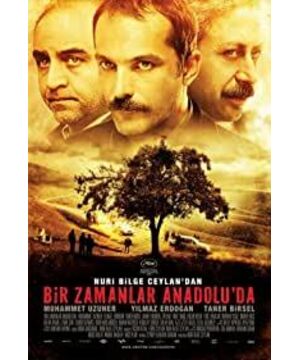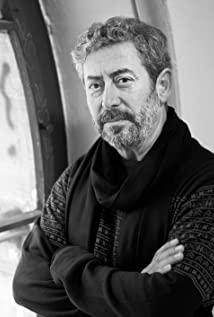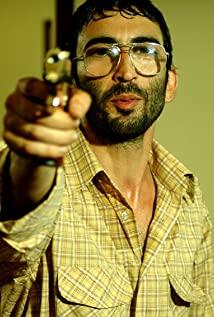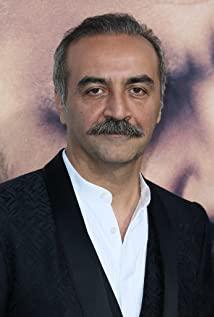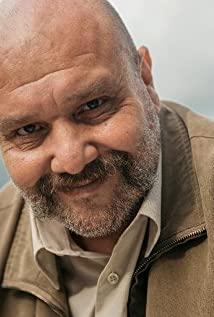I am a very sensitive person, with a fragile nerve and heart.
Before I went to bed last night, I sent a WeChat message to someone who cared a lot, but the other party did not respond for a long time.
So the level of my emotions began to sink into the dark deep sea under the WeChat buoy.
I am like a child sitting under a tree full of suspicion, being hit by many unkind apples. The head is often filled with distress and perplexity. My sister told me that this was bad, and it was tiring for others and myself. I don't want to. But my neurotic tentacles are always very active, excitedly catching any possible turbulence around me day and night. If everyone's emotional ups and downs and vibrations can be quantified as visible natural phenomena, then my sensitivity, vulnerability and love of suspicion are definitely enough to trigger frequent and periodic earthquakes or tsunamis.
Most of the time I am calm, at least on the outside. I suppress them, like the lava inside the volcano or the seabed that is gradually cooling and solidifying in the flow, only turning into the orange-red bubbles with the smell of sulphurous sulphur.
I think I might go crazy if I think about it like this, so I want to look for a movie that is tragic enough, cruel enough, and desperate enough to watch, so that I can imply that my own little troubles are about to be devastated by the whole mankind. How small, insignificant, hypocritical, meaningless and ridiculous is before this grand proposition of existence or destruction. I was concerned about the plot, and when the movie ended, the negative emotions that entangled myself were also completely negated, and then I could grin unconsciously again.
Yes, many times this will work very well. Most of my anxiety can often be relieved by watching movies, but today I look at it and feel more and more that the people inside live with ideals and pursuits, even those The villains are also full of emotions, unscrupulous and confident in their eyes for the dark purpose.
And the bad thing is that as the plot deepens, I suddenly feel that the reason for their hatred of each other has become a bit weird. Their hysterical and broken mouths made a voice that seemed to come from the person who did not reply to WeChat: he was facing. I roared hoarsely in front of the screen, his facial features were distorted and he used a very hideous expression to accuse me of all kinds of embarrassment. My consciousness began to follow the plot vaguely, and I became the evil villain in the movie. I was chased by the messenger of justice who was incarnation of that person’s WeChat avatar. I fell asleep in a daze when I could wait for the final ending, but I think justice will eventually defeat evil. I felt relieved, if I had to choose someone to shoot at myself, I would be glad to be killed by a decent person like him.
I woke up in the night, clicked on WeChat and still no new message popped up. It became very calm in an instant, and my heart felt like still water.
I checked the playback record of the website and clicked on the movie again, and found that it would be difficult to watch this movie without extreme emotions.
I don't really like watching movies like this kind of simple opposition between justice and evil, because human nature is inherently complicated and cannot be separated. Therefore, the establishment of characters that are too facial will make people feel one-sided, lacking depth and naive. However, such films are generally visually shocking and the scenes are hot. The popcorn movie is not intended to explore human nature, just to make your blood boil and get the most direct impression and stimulation.
For example, few people would reject such commercial giants as "Transformers" and "Jurassic Park", and I do not list them.
I like a lot of weird movies. Watching the protagonist go through all kinds of things and gain detachment with him.
I love those marginal people who are niche, they are not necessarily down, but they always experience the same displacement in their hearts.
I love movies very much, but I don't like trying to interpret them from the perspective of plot and technology.
The scenes were superimposed, and the scenes penetrated into the nerves under my cerebral cortex through my retinal lens, flowing in my consciousness. One after another, unusually noisy.
Light up the phone, 1:45. I touched the cup on the table and drank it in one gulp, opened the browser and began to scan my favorites faintly... I clicked on this "Once Upon a Time in Asia Minor" (also known as "Once Upon a Time in Anatolia").
This is a work in which the overtones are higher than the plot. Director Ceylon is a veiled interpreter who has experienced vicissitudes of life.
At the beginning of the movie, three cars drove slowly in a quiet and dark wilderness. The light beams of the car plunged into the darkness. The bright yellow gap opened in the rear of the car and returned to darkness, like the dark algae drawn by a boat's oar, gathering faintly in the next second. The mountain road is winding and hidden in the long grass, and the wheels are weighing down the dust. The bend is slow and the slope is slow, the lights are staggered, and gradually overfire.
Three cars slowly stopped in a dark green scene that was also all around, and everyone got off. The policeman-like passenger questioned a man with a gray face. The wind blew the tree late to shake off the rustling leaves. The man's words were vague and unclear. The group complained and squeezed into the car again. The body whimpered when it started, like another tired and sad person.
The group of people are like travellers traveling in the starry night. The camera switched close shots, and the suspect looked tired. The light of the car behind hit the glass, amber and yellow against his thin, unhealed face, he looked like a suffering sage in the lens, and the corner of his eyes was still curled up with the compassion of Duren when he was tired.
The driver and the policeman talked about life and current situation. There are many complaints and grievances in trivial words.
The doctor listened nonchalantly in the back seat, staring out the window.
Running around all night finally found the remains of the victim in the place where the body was thrown at dawn. Everyone witnessed the crime of the suspect. Everyone's heart can't be calmed for a long time, and everyone has experienced the oppressive predicament of a lifetime of poverty. No one can mourn the departure of others for a long time.
The brushstrokes of the movie mostly stay on close-ups of natural scenery and characters. The visible plot can be simply concealed as the driver, the prosecutor, the forensic doctor, the police officer, the victim's family, etc., who came to identify the place where the body was thrown under the description of the suspect.
But its deep meaning lies in the prying into the declining status quo of Turkish society. At the end, the prosecutor's actions revealed the myth that the credibility of society's high hopes was artificially stranded.
The director's in-depth understanding of naturalism makes the film express an unreliable sigh of social predicament and individual inner depression with almost artistically beautiful lens language and poetry.
Similar to the beauty of mourning that Japan advocates. This film is the culmination of sentimental naturalistic aesthetics.
The director's superb lens expression makes the picture profound. The contrast between dynamic and static, the ratio of light to shadow is rigorous and precise, with extremely static tension.
Black tires submerged in the wind.
An apple rolling down the stream.
The car lights were brilliant, the wind rolled along the hillside, and the leaves fell in response. Two middle-aged men standing leeward under a tree. All are rich in the beauty of melancholy.
The picture of the village chief’s daughter holding a lantern to deliver tea to everyone is like a metaphor of holiness. The golden oil lamp concealed the girl as an angel to wash all beings. The suspect sobbed. The gentle, elegant and expressionless girl warms their memories with the image of a carer.
The doctor thought deeply, watching the bonfire in the corner swaying with the wind, and the oil lamp on the wall swaying almost completely. Thoughts follow the eyes, which are superimposed one after another like surreal paintings.
Marvel at the director's ability to perceive beauty.
These time-honored shots are like philosophical thoughts under the dim light. It is eternal because of the purity of nature and the release of humanity.
The narrative and composition of the film are full of far-reaching blanks. The audience will quietly and unconsciously fill in their own consciousness in the quiet and empty symbolic natural scenery, and then reap their own cognition. It can be said that the film provides an open viewing experience and the viewer has been privatized. The second creative process.
The movie can be regarded as a complete image. Its core is tolerant introspection and accusation.
It is like a song of sadness that has permeated the entire Turkish society for a long time.
View more about Once Upon a Time in Anatolia reviews


